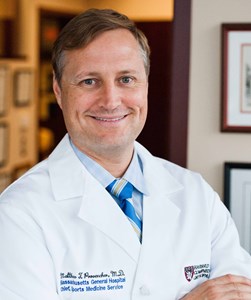Revision Shoulder Stabilization Surgeon

Are you an athlete who participates in powerful, repetitive overhead motions? If so, you are at an increased risk of a shoulder dislocation and shoulder instability. In some cases, shoulder stability surgery may fail and revision shoulder stabilization surgery is required. Revision shoulder stabilization surgeon, Dr. Matthew Provencher specializes in surgical techniques to alleviate recurrent symptoms and to return patients in Vail to an active lifestyle. Contact Dr. Provencher’s team today!
What is Revision Shoulder Stabilization?
Athletes and other active individuals who perform powerful, repetitive overhead motions are at an increased risk of a shoulder dislocation and shoulder instability. A shoulder dislocation occurs when the head of the humerus (ball) and the glenoid area of the scapula (socket) become torn apart, leading to pain, instability of the joint, and decreased range of motion. Certain cases of a dislocated shoulder and shoulder instability require surgical repair to return the joint to normal function. Unfortunately, some of these repairs will require an additional surgery if the repair fails, known as revision shoulder stabilization surgery. Vail, Aspen, Colorado Springs and Denver, Colorado area orthopedic shoulder surgeon, Dr. Matthew Provencher specializes in revision shoulder surgery techniques to alleviate recurrent symptoms and to return patients to an active lifestyle.
Even though arthroscopic and open shoulder technology has advanced over the years, the failure rate for shoulder instability repairs is between 5-30 percent. Failure of a shoulder stabilization technique can be divided into failures from postoperative stiffness, persistent pain, and recurrence of instability after the original shoulder surgery. Each of these factors can occur individually or in combination.
Many patients who visit Dr. Provencher after a failed shoulder stabilization procedure report feelings of ongoing shoulder instability, pain, and joint stiffness. In order to correct the chronic symptoms, Dr. Provencher must perform a thorough physical examination of the unsuccessfully repaired joint to determine the cause of failure and to plan for future shoulder surgical intervention.
Do I need Revision Shoulder Stabilization Surgery?
Dr. Provencher will examine a patient’s potential for re-injuring the recurrently unstable shoulder joint, the previous shoulder surgery technique, and whether that technique relieved any of the patient’s symptoms before determining the correct revision shoulder stabilization technique. A number of diagnostic tests will be performed to determine these factors, including x-rays, an MRI scan, and/or a CT scan.
Dr. Provencher will utilize either an arthroscopic or open revision shoulder surgery technique. Both are effective at treating recurrent shoulder instability. The principle behind any revision shoulder stabilization surgery is to perform an anatomic repair, replenish any bone loss, restore ligament tension, and provide secure fixation.
Arthroscopic revision shoulder stabilization is most effective at treating a missed or inappropriately treated capsular laxity or injury and an unrecognized labral injury such as a SLAP tear. Open revision shoulder stabilization procedures are often recommended for patients with severe glenoid bone loss, subscapularis deficiency requiring surgical intervention, or patients with a Hill-Sachs lesion.

What is the Recovery After Revision Shoulder Stabilization?
After revision shoulder surgery, Dr. Provencher will prescribe a detailed physical therapy rehabilitation program to help patients return strength and mobility to the repaired joint. It is strongly suggested that patients work with the in-house physical therapists at Howard Head Sports Medicine to optimize their rehabilitation. Patients will also be encouraged to wear a sling or similar device for a predetermined amount of time, generally six weeks.
For more information on revision shoulder stabilization surgery, or to learn more about how this shoulder surgery can treat your recurrent shoulder instability, please contact the office of orthopedic shoulder surgeon Dr. Matthew Provencher, serving patients in Vail, Aspen, Colorado Springs and Denver, Colorado.